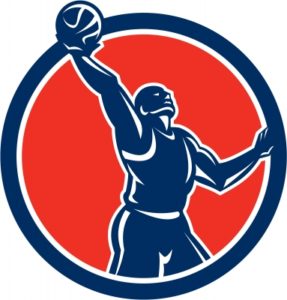Philippine Customs Commissioner Nicanor Faeldon defended the hiring of athletes as technical assistants at the Bureau of Customs (BOC), saying the sportsmen have been effective communicators and even intelligence officers.
Faeldon, in a press conference on August 4, explained that the 27 technical assistants, some of whom were former Philippine Basketball Association (PBA) and professional volleyball players, were not organic BOC employees, but hired under contract of services for the agency’s program on personnel development. Not all of the 27 are athletes, he clarified.
During a Lower House hearing on August 3, lawmakers questioned the appointment of athletes as technical assistants, as the ballplayers were only supposed to coach BOC’s basketball and volleyball teams.
Faeldon said BOC had discussed at length with the Commission on Audit the program before it was started. The project aims to promote camaraderie and physical fitness among bureau employees, as well as communicate to the public the agency’s reform program. The athletes are also performing other tasks, though not discretionary in nature, in different BOC offices, said the customs head.
Some of the former athletes hired included retired PBA players Kenneth Duremdes, Marlou Aquino, Edward Joseph Fiehl, Gherome Ejercito, and Bernzon Franco. The volleyball players included Alyssa Valdez and Parley Tupaz. The volleyball players have already resigned, while most of the basketballs players are awaiting renewal of their contracts that expired last June.
Chief of staff and BOC spokesperson Atty. Mandy Therese Anderson said the allocated budget for the agency’s personnel training program had been approved by Congress.
Anderson said the athletes were hired to “promote unity in the bureau” and help keep law enforcement personnel fit.
The former ballers are even slated to star in a new infographic series of BOC, Anderson noted.
Under its physical fitness program, BOC has been joining basketball and volleyball leagues, doing practical shooting training, and conducting fun runs.
Aside from sports activities, Faeldon said the hired athletes also immersed themselves in BOC’s community outreach programs to get the public’s perception of the agency and help transform the image of the bureau.
“Their main goal here is to bridge the gap between the Bureau of Customs and the Filipino people,” Faeldon said.
“I believe that every reform that we institute in the bureau will not succeed unless the Filipino people supports it,” he added.
With BOC tagged as the country’s most corrupt agency, the customs chief said that if its brightest lawyer or employee tries to reach out to the public, “I guarantee you, hindi lang siya hindi pakikinggan, babatuhin pa siya [not only will no one listen, people will even pelt him with rocks].”
That is why, Faeldon said, they needed to bring in effective communicators, choosing former basketball players because of their following and “Filipinos’ love [of] basketball.”
Aside from working as communicators and players of BOC’s sports teams, Faeldon said the athletes also do other tasks such as clerical work and intelligence gathering.
The customs chief said the most effective intelligence information gatherer is someone no one expects to gather information.
Claiming that the program has been effective, BOC will be renewing the contract of the athletes for another year.
On the salary that members of the program receive, Faeldon said
The athletes receive from P20,000 to P38,000 a month. Earlier, there were reports the athletes were receiving monthly compensation of P50,000 and another P50,000 from players (smugglers, in customs parlance).
Shame on you
Meanwhile, in a press conference on August 2, Faeldon appealed to lawmakers and other government officials to stop making the BOC even “more corrupt” by trying to exert influence on the assignment and promotion of its personnel.
Faeldon revealed that he has been receiving requests from lawmakers and other government officials to promote, designate, or reassign people in BOC.
“They want me to influence the promotion board so their people here will be promoted. And I tell them right (to) their face I will never lift a finger to influence promotions here. That is a form of corruption,” he said.
“I am appealing to you. You know that your request is a form of corruption but you insist and magagalit pa kayo (when the request is denied)… Shame on you. Stop it.”
“This is a very corrupt bureau and you are making it more corrupt. Please stop it,” he added.
The customs chief did not name the officials he was referring to, and said he also does not report them, as he appeals to them directly that those kinds of requests are no longer being granted.
Anderson recently revealed that House Speaker Pantaleon Alvarez had asked for the promotion of BOC official Sandy Sacluti. Finding the official unqualified for promotion, BOC denied the request, which Anderson claimed cause her scolding by Alvarez. Anderson alleged further that Alvarez’s head staff called her to say that the Speaker’s marching order was to “bring hell” to her and Faeldon.
The customs chief said BOC is encountering problems with hiring personnel, as politicians and government officials were previously allowed “to send their people here, to force their people here.” He noted that most of these politicians or government officials are engaged, directly or indirectly, in the importation or forwarding business.
To address this issue, Faeldon said legislators can enact a law prohibiting any government official from recommending their people to BOC posts and leaving this power to appoint to the President.
One of the plans to reform the bureau is to create a training academy for incoming BOC officials to make sure they are competent and incorruptible. BOC’s Philippine Customs Academy (PCA) will start on October 1, Faeldon said. All incoming BOC personnel will be trained in PCA for six months on self-defense, lifesaving, and character building.
Faeldon said the PCA will “grind” and mold trainees to resist corruption.
According to Faeldon, BOC is dealing with billions of pesos every day and “the temptation here is so high so the character of the people here must be very strong. They have to refuse, they have to reject in their system corruption.”
“If you are corrupt, you cannot pass the grinding process,” he said.
BOC will be filling 3,000 posts in the next two years and all hires will undergo PCA training.
Aside from requests for promotion and reassignment of personnel, Faeldon said he also gets money offers to allow the release of shipments with irregularities.
He said he refuses such requests and tells those making these offers to just pay the correct dues.
Image courtesy of vectorolie at FreeDigitalPhotos.net






